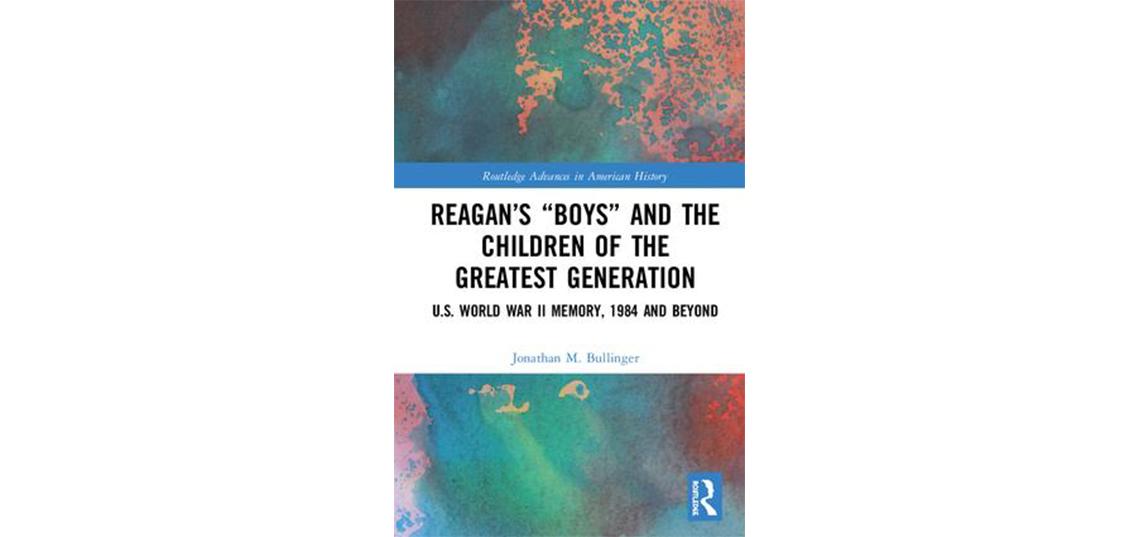
Nearly 40 years ago, aging Baby Boomer parents (born beginning in 1946) began to describe their parent’s accomplishments during World War II by referring to them collectively as “The Greatest Generation.” The implications of this type of memory is the subject of “Reagan’s ‘Boys’ and the Children of the Greatest Generation,” a new book by Jonathan Bullinger, who earned a Ph.D. at SC&I in 2017.
According to the publisher, Routledge, “During the 1980s and 1990s, aging Baby Boomer parents constructed a particular type of memory as they attempted to laud their own parents’ wartime accomplishments with the label "The Greatest Generation." This book is the first to tell the entire story of this particular type of U.S. World War II memory begun by U.S. President Ronald Reagan in 1984, and promoted the same year by newscaster Tom Brokaw. The story continues in 1994, when it was given academic credence by historian Stephen E. Ambrose, a sensory realism and ideal American character by director Steven Spielberg and actor Tom Hanks, sloganized by Tom Brokaw in 1998, and later interpreted in light of 9/11 and new wars.”
Bullinger is a lecturer at SUNY Geneseo. His research interests include collective memory, alternative history, commemoration, branding, video games, and war and culture. His doctoral dissertation was titled “Remembering World War II: Children of the Greatest Generation and Social Memory” and his committee included current SC&I faculty members Susan Keith, Jack Bratich, and Melissa Aronczyk.
More information about the Ph.D. Program at the Rutgers School of Communication and Information (SC&I) is available on the website.
